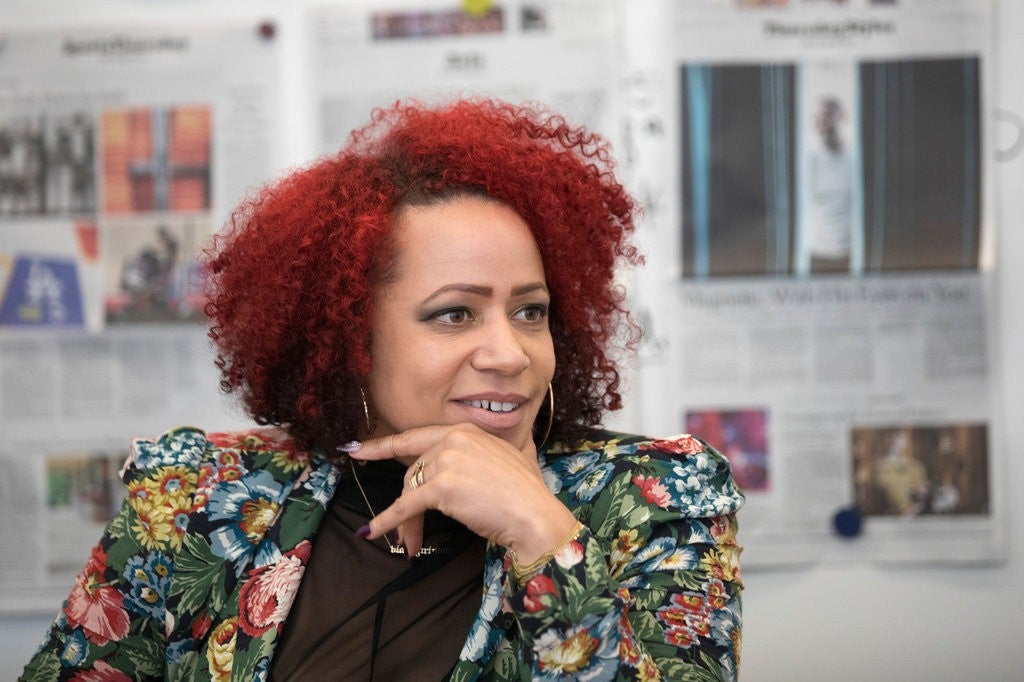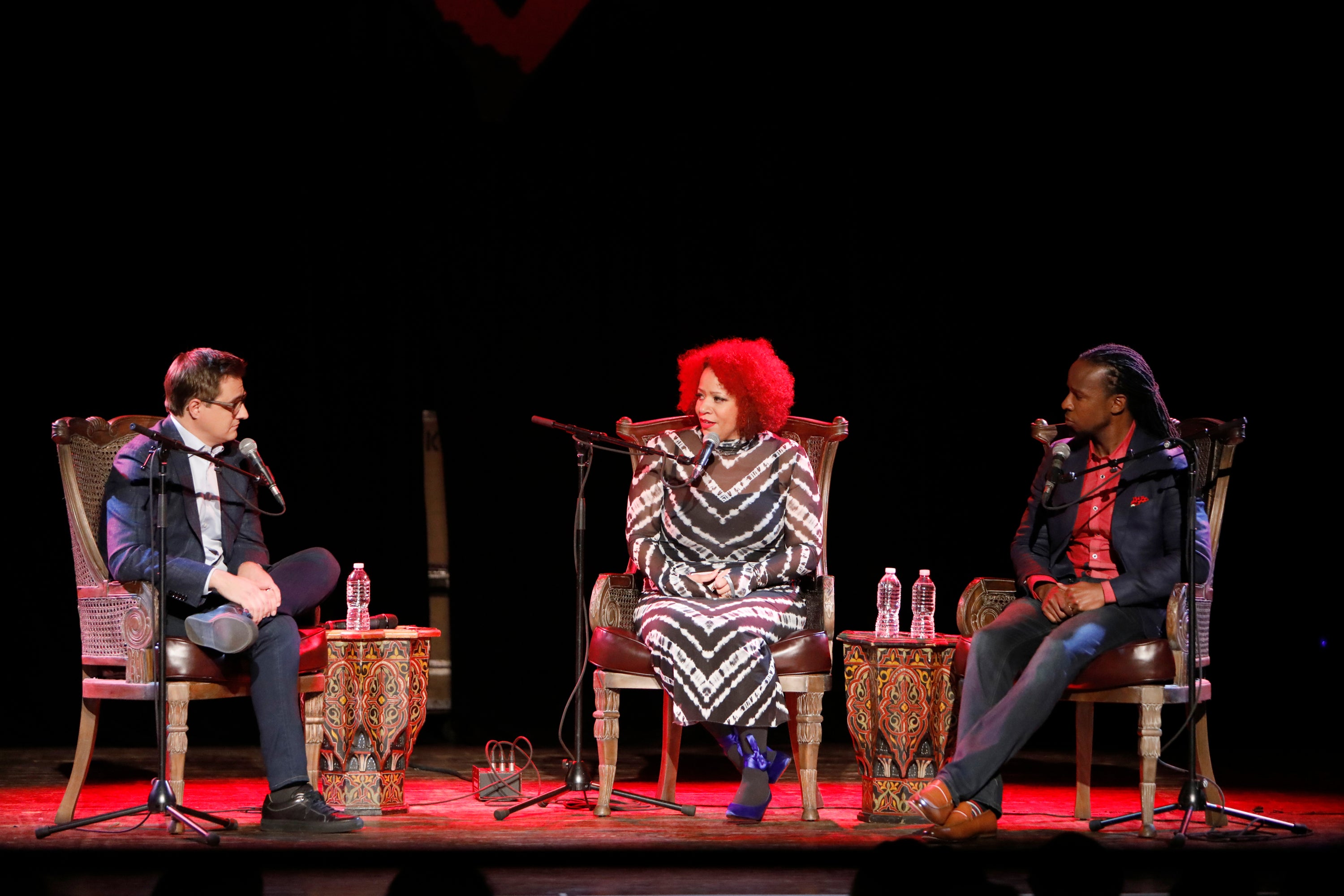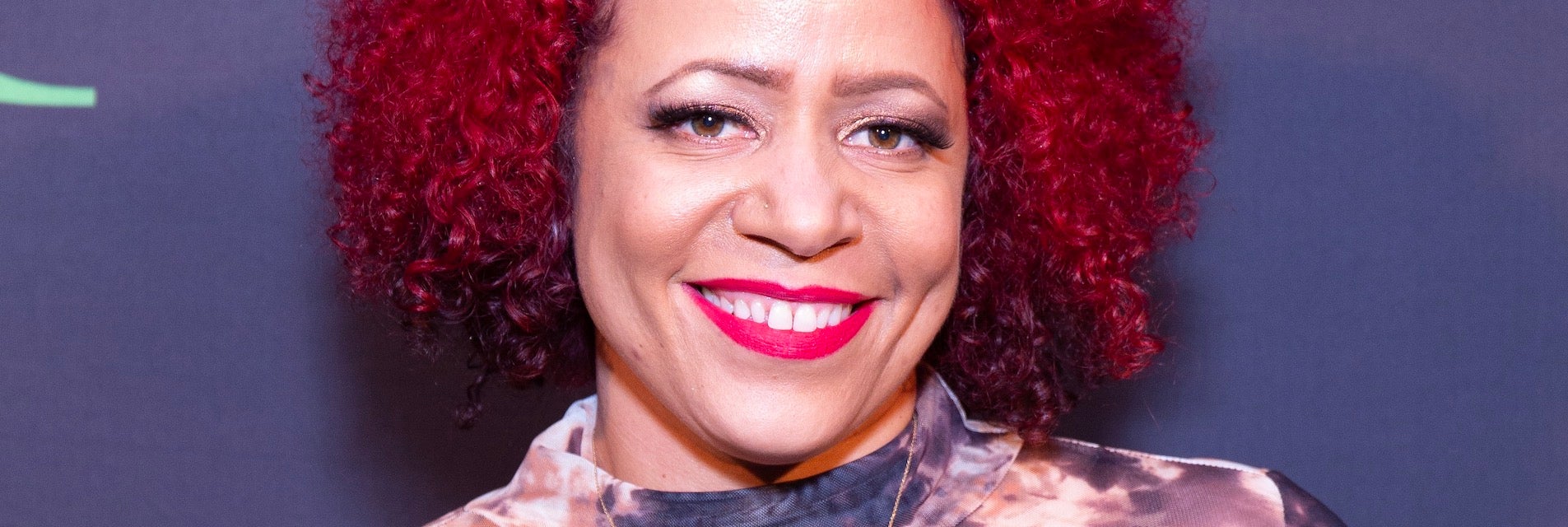Like the Black revolutionaries who came before her, Nikole Hannah-Jones fully understands the magnitude of walking in her purpose.
As a Black woman, she knew her wide-ranging package about slavery’s tie to the American democracy, captured in The 1619 Project, would face opposition. And like those before her, who laid bricks in the foundation of change, she rolled up her sleeves and fearlessly answered the call. As a journalist, it meant reframing the version of whitewashed history that is on repeat and reshaping the legacy of slavery—the very institution that built America.
The 1619 Project is a collection of essays, poems, photo stories and even a podcast, featured in The New York Times Magazine. The historic effort was released on the 400th anniversary of the year the first set of enslaved Africans arrived in Virginia. The acclaimed initiative, which shook the ground our ancestors built with their bare hands, is now being primed for a global audience after Hannah-Jones and the New York Times announced a collaboration with media titan Oprah Winfrey and Lionsgate to turn 1619 into an expansive portfolio of feature films, television series and other content for a global audience.
“The only reason I became a journalist was to write about racial inequality and to write about Black folks,” Hannah-Jones tells ESSENCE, her cool demeanor emanating through our connection over the phone. “My role as a Black journalist is to do serious journalism; that is working to the benefit of our people.”

Walking through the world as a Black woman with vibrant hair that swells outward prepared Hannah-Jones for the adverse reaction she would eventually face as the director of The 1619 Project. In particular, her essay that deconstructs democracy garnered intense backlash. “The project was 40,000 words with 10 essays and people have focused very intensely on my article on democracy,” she states.
From childhood, we are taught in schools that America is founded on the fundamental idea of freedom for all citizens. Yet at the birth of our nation, freedom only applied to White men. The words of our Founding Fathers were rife with lies and hypocrisy in order to keep the establishment of patriarchy and chattel slavery intact.
“We can read the same constitution and come up with different interpretations of what that document is,” Hannah-Jones explains. “In the field of historiography, there’s always arguments. Historians write papers against other historians, arguing against the works of other historians. That’s very natural, but what happened, of course, at The 1619 Project is it became very politicized. And so the natural way that the field of history works in this case was used to try to discredit the whole project.”
Despite attempts to disparage her work, motivation was never an issue for Hannah-Jones. She was on a mission that happened to coincide with her dreams, she says. “The work that I’m doing is my mission and I am incredibly blessed every day to be able to spend a lot of time reading and thinking and researching, and then writing these stories for a publication like the New York Times,” she adds.
I remember thinking if Black people don’t love this, don’t embrace this, I would have failed.”
“I certainly had moments where I was afraid I wouldn’t be up to the task. I didn’t want to fail. I didn’t want to make mistakes. I didn’t want to let our people down. And I remember thinking if Black people don’t love this, don’t embrace this, I would have failed. I felt those kinds of pressures,” Hannah-Jones notes, “but motivation is not ever an issue.”
The award-winning journalist admitted her anxiety around The 1619 Project truly lies in its adaptations on TV and film because “it’s not an area of my personal expertise,” she says. But Hannah-Jones shouldn’t have to worry too much with Winfrey backing her.
“I was blown away when I found out that [Oprah] was interested in working on the project. I can’t ever remember a time when I wasn’t aware of Oprah Winfrey and the power that she had as a Black woman and the heights she’s been able to reach,” Hannah-Jones gushes. “I certainly never imagined that, as a Black girl from Waterloo, I would one day be working with Oprah.”
In an official press release, Winfrey revealed that she was “moved, deepened and strengthened by [Hannah-Jones’s] empowering historical analysis,” calling it an “honor” to guide The 1619 Project into its next foray into uncharted territory.

Hannah-Jones shares that Winfrey explained to her that “she wants to be really ‘intimately involved’ in the project” and serve as a mentor.
“Partnering with Oprah assured me that there would be a powerful Black executive in the room when decisions were being made,” says Hannah-Jones. “And that’s really important to me that there was someone, who this is their area of expertise, who wields a degree of power, who will be in the room. That was really critical. And that is the role that she is going to play.”
Still, the Pulitzer Prize–winning journalist isn’t exactly sure what’s to come from an entertainment perspective. “What I can tell you is we will be working with Black creatives, Black directors, Black producers,” she hints. “We are very determined that this is going to be an opportunity for Black creatives from top to bottom.”
“So not just the big names in terms of directors and producers, but also who’s on the production staff. It is very important to me that a project on the legacy of slavery, is one that provides opportunities for the descendants of slavery,” she adds.
The announcement of project’s next foray came on the heels of nationwide protests for civil rights. Black people have been at the forefront of every civil rights movement in the U.S. and our fight for equality persists in every facet of our society. Perhaps the most rewarding part of The 1619 Project, Hannah-Jones says, is its potential to change school curriculums.
“I have thought endlessly about what it was like for me as a Black child—the way we were taught this history and the way Black people were pretty much erased from the history—and how demeaned I often felt,” Hannah-Jones recalls. “But also how little you could understand about your modern world because you hadn’t been taught the real history of how we got here.”
Hannah-Jones adds that 1619 has “an amazing legacy,” especially “when I think children all over this country will be learning a different version, and one that challenges our assumptions, and one that I hope really highlights the contributions and struggles of Black Americans.”



